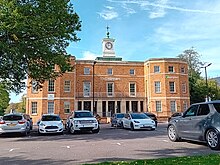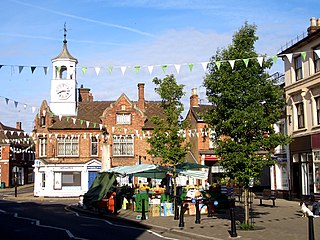
Ampthill is a town and civil parish in the Central Bedfordshire district of Bedfordshire, England. It lies between Bedford and Luton. At the 2021 census it had a population of 8,825.
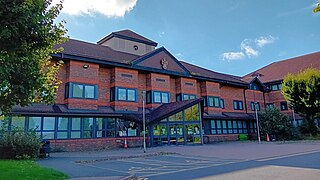
South Bedfordshire was a local government district in Bedfordshire, in the East of England, from 1974 to 2009. Its main towns were Dunstable, Houghton Regis and Leighton Buzzard.
Salisbury was a local government district in Wiltshire, England from 1974 to 2009. Its main urban area was the city of Salisbury.

Old Warden is a village and civil parish in the Central Bedfordshire district of the county of Bedfordshire, England, about 6.5 miles (10 km) south-east of the county town of Bedford.

Bedfordshire is an English ceremonial county which lies between approximately 25 miles and 55 miles north of central London.
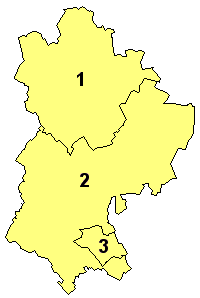
A civil parish is a country subdivision, forming the lowest unit of local government in England. There are 125 civil parishes in the ceremonial county of Bedfordshire, most of the county being parished: Luton is completely unparished; Central Bedfordshire is entirely parished. At the 2001 census, there were 312,301 people living in the 125 parishes, which accounted for 55.2 per cent of the county's population.

Mid Bedfordshire is a constituency represented in the House of Commons of the UK Parliament by Blake Stephenson of the Conservative Party since the 2024 United Kingdom general election.

Bedford Borough Council is the local authority of the Borough of Bedford, a local government district in the ceremonial county of Bedfordshire, England. The town of Bedford was a borough from at least the 12th century until 1974, when the modern district was created. It covers a largely rural surrounding area as well as the town itself. The modern council was initially called Bedford District Council from 1974 to 1975, then North Bedfordshire Borough Council from 1975 until 1992, when the current name was adopted. Until 2009 it was a lower-tier district council, with county-level services provided by Bedfordshire County Council. The county council was abolished in 2009, since when Bedford Borough Council has been a unitary authority, being a district council which also performs the functions of a county council.
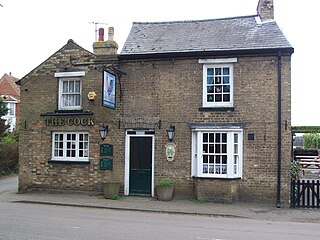
Broom is a small village in the Central Bedfordshire district of the county of Bedfordshire, England about 8.5 miles (14 km) south-east of the county town of Bedford.

Chicksands is a village and former civil parish, now in the parish of Campton and Chicksands in the Central Bedfordshire district of Bedfordshire, England. The village is on the River Flit and close to its parish village of Campton and the town of Shefford.
Biggleswade was a rural district in Bedfordshire, England from 1894 to 1974. As initially created the district entirely surrounded but did not include Biggleswade, which was an urban district in its own right. In 1927 the parish of Sandy, which bordered Biggleswade, also became an urban district, leaving an island of two urban districts surrounded by the rural district.
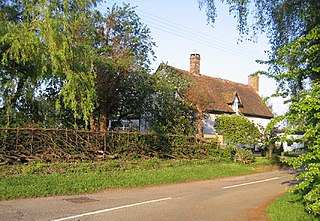
Stanford is a hamlet in the civil parish of Southill, in Central Bedfordshire, England. It is about 8.5 miles (14 km) south-east of the county town of Bedford.

Luton Borough Council, also known as Luton Council, is the local authority of Luton, in the ceremonial county of Bedfordshire, England. Luton has had an elected local authority since 1850, which has been reformed several times. Since 1997 the council has been a unitary authority, being a district council which also performs the functions of a county council.
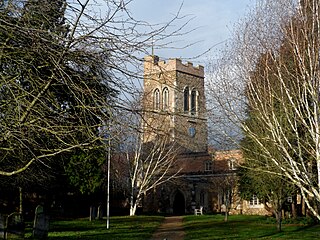
Southill is a rural village and civil parish in the Central Bedfordshire district of the county of Bedfordshire, England; about 8 miles (13 km) south-east of the county town of Bedford.
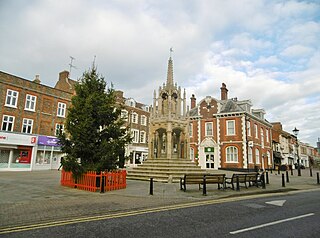
Central Bedfordshire is a unitary authority area in the ceremonial county of Bedfordshire, England. It was created in 2009.

Central Bedfordshire Council is the local authority for Central Bedfordshire, a local government district in the ceremonial county of Bedfordshire, England. The council is a unitary authority, being a district council which also performs the functions of a county council. It has been under no overall control since 2023, being run by an independent-led administration. The council is based at Chicksands.

Upper Caldecote is a village in the Central Bedfordshire district of Bedfordshire, England about 8 miles (13 km) south-east of Bedford.

The 2011 Central Bedfordshire Council electionfor the Central Bedfordshire Council were held on 5 May 2011, along with other United Kingdom local elections. The whole council was up for election following boundary changes, with each successful candidate serving a four-year term of office, expiring in 2015.
The first election to Mid Bedfordshire District Council was held on 7 June 1973, with the 49 councillors elected forming a shadow authority until 1 April 1974. Mid Bedfordshire District was formed on 1 April 1974 as part of a general reorganisation of local authorities in England and Wales carried out under the Local Government Act 1972. The district was formed by the amalgamation of five districts:


